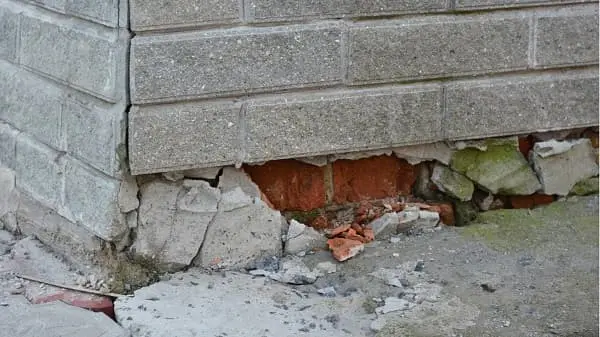Buying a home surely is pretty expensive, especially nowadays when property rates are at an all-time highest. Therefore, buying a home on your own can be a really huge achievement for you, and of course, it is considered one of the best investments that one can make. But you may have heard from many experts that buying a home is an incomplete investment without a home insurance policy. That is true to some extent, but do you want to know about the complete side of home insurance? Well, that is what today’s post is going to be all about.
Here we will be taking a look at the possible home insurance advantages as well as disadvantages. This way, you’ll be able to come up with an informed decision at the end of whether you should sign up for a home insurance policy or not. So let’s get started. Also know When Do You Need Home Insurance?
Home Insurance Advantages
Here are some benefits of using home insurance:
1. Great Financial Support In Case Of Damages To Your Home
Most home insurance policies are designed in a way to provide financial support to the homeowner in case a natural calamity occurs, or a third party is liable for the damage. Mishappenings are a thing, and things like explosions, fire breakouts, and other uncontrollable natural calamities can happen anytime. Not just that, in case there was any theft, property destruction, or any other damage caused by a third party, then you can claim home insurance for the repair of your home. This way, you won’t need to pay for the repair cost out of your own pocket, and that would be a big help from your home insurer.
- Also Read: Life Insurance Advantages and Disadvantages
2. Protection From Lawsuits
If an accident occurs at your home or property, and unfortunately a person gets injured, then you won’t be legally liable for that. Only if you didn’t cause the injury or anything like that. If this is the case, then you can claim home insurance, and your insurer will pay for the medical bills of the person who got injured at your home or property in an accident. However, you should always buy a home insurance policy that always provides protection from lawsuits. We are saying that because there are many insurers out there who don’t offer protection against such lawsuits.
3. You Can Stay Worry Free
One thing is for sure after signing up for a home insurance policy, you’ll have peace of mind. You won’t need to worry about any of the damage done to your house because, in the end, you’ll get compensation for that if anything happens in the future. This thing not just supports you financially, but you will be able to feel the psychological impact as well. And that is only because buying a house or property in India is really a big thing or investment on its own.
Home Insurance Disadvantages
Here are some drawbacks of home insurance:
1. Not Everything Is Covered
Keep in mind that every home insurance policy is different, and the amount of coverage or insurance support you get may differ based on the fact that who is your insurer. There are many insurance companies in the Indian market that don’t provide full coverage. There could be specific terms in the insurance policy that don’t allow you to claim for every type of damage done to your home by natural calamities or a third-party person. That is why we always recommend investigating home insurance policies by digging a little deeper. And it would be better if you consult with an expert before taking the home insurance policy.
2. Expensive Premiums
Without a doubt, home insurance policies are quite expensive, and if your financial situation isn’t stable after buying a property, then expensive home insurance premiums can become another financial burden. On average, the home insurance monthly premiums are quite expensive compared to any other type of insurance policy premiums. And this is the prime reason why many people in India just don’t sign up for home insurance policies because they can’t afford to pay such high expenses each month.
3. Hidden Policies
Believe it or not, insurance policies are usually designed in a way to confuse the regular buyer. The language and the hidden policies in the insurance plans can be really hard to understand sometimes. Therefore, you should always read the policies of a home insurance company thoroughly before signing up for any of their plans. And that is because many insurance companies set up loopholes that save them from paying the whole claim amount to the home insurance policy buyer. Since home insurance usually costs on the expensive side, therefore, we’d say either you should read the terms and conditions thoroughly or take an expert’s advice on the insurance policy.
Conclusion
Now you should have a clear understanding of whether you should opt for home insurance or not. In our opinion, there are many advantages to signing up for a home insurance plan because it can save you from financial as well as psychological burdens in case of any mishappening.
Home Insurance FAQs
Q1. How Can I Save Money On My Home Insurance Premiums?
Ans: The quest for affordable home insurance premiums doesn’t have to be difficult. Start by shopping around and comparing quotes from various providers, as rates can differ significantly. Look into bundling options, like combining your home and auto insurance policies, as insurers often provide discounts for multiple policies. Raising your deductible can result in lower premiums, but remember that this means you’ll be responsible for a higher out-of-pocket expense in the event of a claim.
Q2. What Are The Most Common Misconceptions About Home Insurance?
Ans: A prevalent misconception is that home insurance covers all types of damage or losses. In truth, standard policies frequently exclude specific perils, such as floods or earthquakes, which necessitate separate coverage. Another myth is that home insurance will cover the entire cost of rebuilding your home or replacing personal belongings. To avoid any surprises, ensure you have appropriate coverage limits in place and understand the distinction between actual cash value and replacement cost coverage.
Q3. What Is The Difference Between “Actual Cash Value” And “Replacement Cost” Coverage In Home Insurance Policies?
Ans: Actual cash value considers depreciation, meaning the insurer will compensate you for your property or belongings’ current market value at the time of the loss. This amount might be less than the cost of replacing the items with new ones. On the other hand, replacement cost coverage reimburses you for the full expense of replacing the damaged or lost items with new, comparable items, without accounting for depreciation.
Q4. Are Home-Based Businesses Covered Under A Standard Home Insurance Policy?
Ans: Some policies may offer limited coverage for certain business-related property, but this is often inadequate to fully safeguard your business assets and operations. To ensure sufficient coverage, consider purchasing additional endorsements or a separate business insurance policy.
Q5. How Does Home Insurance Handle High-Value Items, Such As Jewelry, Antiques, Or Artwork?
Ans: Home insurance policies generally include coverage for personal belongings, but they often impose limits on the amount of coverage provided for high-value items like jewelry, antiques, or artwork. To guarantee these valuable possessions are sufficiently protected, you may need to purchase additional coverage, commonly referred to as a “floater” or “scheduled personal property endorsement.”















